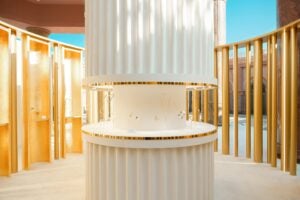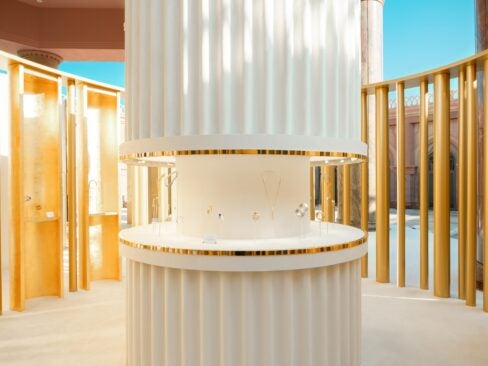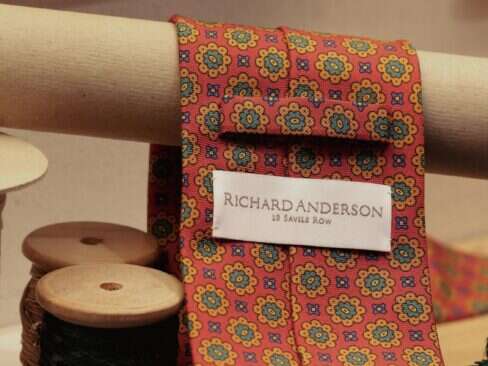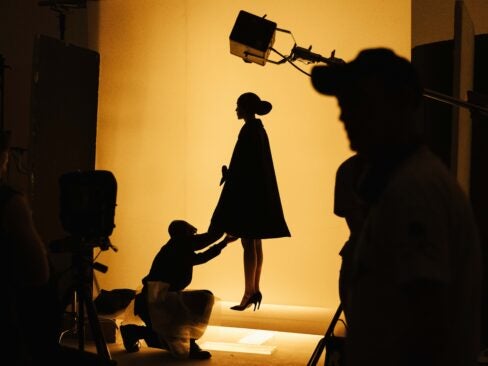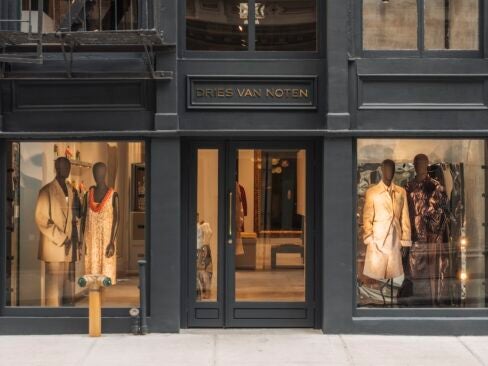The €25,000 prize, funded by the Saxon watch manufactory, is awarded in recognition of significant commitment and support on behalf of developing young artists.
 The Glashütte Original Music Festival Award ceremony took place against the backdrop of the Dresden Music Festival, which came to a close on June 2, celebrating a very successful year.
The Glashütte Original Music Festival Award ceremony took place against the backdrop of the Dresden Music Festival, which came to a close on June 2, celebrating a very successful year.
On stage at the Dresden Theatre, the director of the Dresden Music Festival, Jan Vogler, and Yann Gamard, managing director of Glashütte Original, announced the name of the 2013 award winner, Thomas Quasthoff.
The German bass baritone was unable to participate in the ceremony due to illness. Accepting the award on his behalf were his wife, Claudia Quasthoff, and one of his students, Manuel Walser, both visibly moved.
The Dresden Music Festival and the Saxon watch manufactory have jointly awarded the prize for support to emerging artists since 2004.
As in previous years, the Glashütte Original Music Festival Award trophy was built by two apprentice watchmakers at the “Alfred Helwig School of Watchmaking” in Glashütte, which is owned by Glashütte Original.
The form of the award trophy unites traditional watchmaking craftsmanship with modern materials. The flying tourbillon with its 18 tiny weighted screws symbolizes the virtuosity of watchmakers. Developed in Glashütte around 1920 by the master watchmaker Alfred Helwig, it is considered to be a sign of the highest form of the watchmaker’s art.
With the award now in its tenth year, Quasthoff is a worthy winner as he has lent his committed support, enthusiasm and artistic and musical competence to young singers as they approach the world of the stage.
At the award ceremony, one of Quasthoff’s students, Manuel Walser, offered the audience a serenade in honour of the award winner. In February 2013, Walser won the “Das Lied” competition in Berlin, which Quasthoff initiated.
The 2013 winner sent a written greeting to the two founders of the Glashütte Original Music Festival Award.
“First I must thank you with all my heart for this award,” he said. “I am honoured to receive recognition for my efforts to win people over to good music, both classical and jazz.
“For me, the real gift is the fact that I get to work with young people. Thank you for acknowledging this with your award!”
In his message, Quasthoff went on to convey his deep regret that he could not be present in person in Dresden and sent his best wishes to the audience for a wonderful evening. He said he hoped to come to Dresden again, as he loved the city, its culture and above all the Dresden Music Festival.
The plan for the evening was for Quasthoff and Louis Lortie to perform at the Dresden Theatre, marking the 200th anniversary of the birth of Richard Wagner.
However, in light of Quasthoff’s absence, the renowned actress Marie Bäumer generously offered to step in at short notice to take over the speaking role. The audience was visibly moved by the appearance of the two artists and rewarded their performance with thunderous applause.
The evening affair concluded in the charming atmosphere of the theatre’s Felix restaurant, as guests engaged in interesting discussions regarding the fascination exerted by music and the art of watchmaking.





